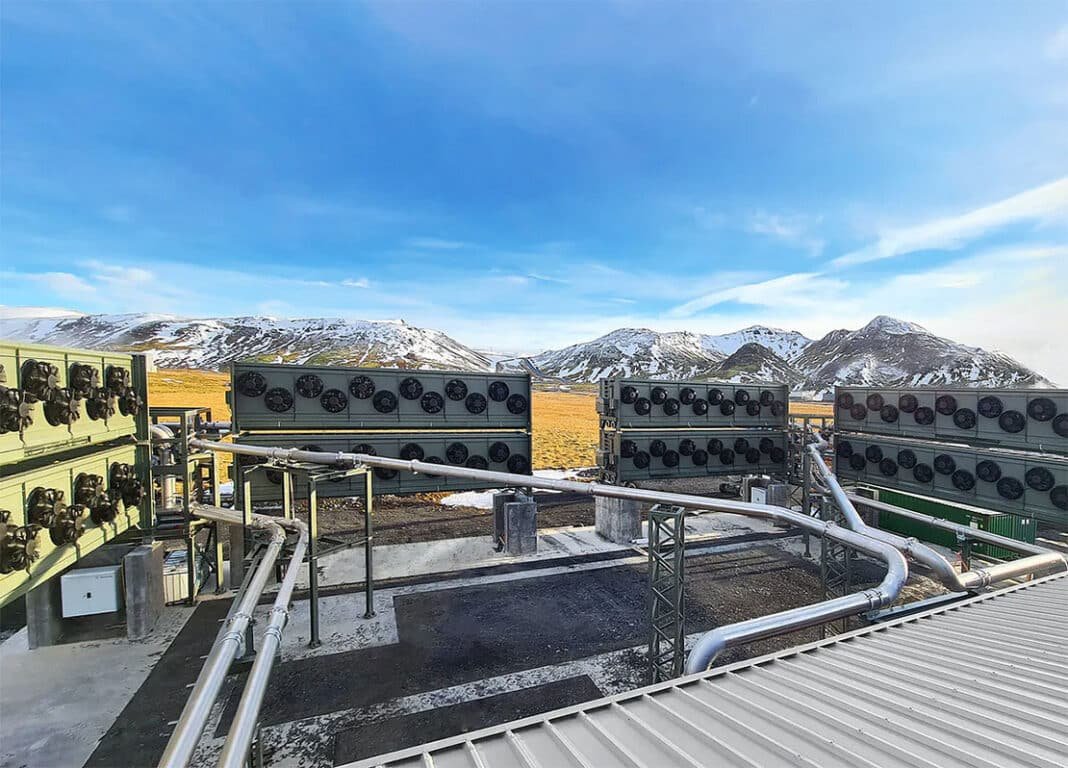There is no question about it: carbon must be removed from the atmosphere to stop global warming. This can be achieved through carbon offsetting, which, though highly effective, is a longer process, and through “direct air capture” (DAC).
If you are wondering what DAC is, you are not alone. DAC is essentially massive CO2-vacuums that suck carbon out of the air immediately.
The largest DAC plant in the world made its debut in Iceland this week and is operated by the Swiss engineering startup Climeworks. The plant, known as Orca, will draw in a volume of emissions equal to approximately 870 cars annually. It will reach global capacity by about 50%, adding a dozen smaller plants throughout Europe, Canada, and the US.
Each plant is composed of eight container-sized boxes that use fans to pull in air. CO2 is then filtered out, mixed with water, and pumped into underground wells, where after some time, it turns into stone.
The objective is to sell the captured CO2 stones to manufacturers that can use them for raw materials. The price per carbon unit seized and then converted is currently unknown.
Before launching Orca, Climeworks signed a deal with insurance company Swiss Re for an undisclosed volume of carbon offsets. Though the price per ton hasn’t been made public, Swiss Re press release stated it was “several hundred dollars.”
Though DAC provides an excellent alternative to carbon offsetting, critics aren’t so sure. The cost of building and operating these machines can be exponential. Plus, to be truly effective, the DAC industry will need to remove nearly 10 million tons of carbon per year by 2030, which is a long way away.
With more premium offset projects entering the global carbon market, offsets are uniquely positioned to benefit companies and farmers alike. Still, DAC is an essential aspect of combating climate change. It can remove carbon at a faster rate while providing companies with eco-friendly materials.
Combined, DAC and carbon offsetting have the potential to make a real difference, helping the world achieve net-zero goals.

